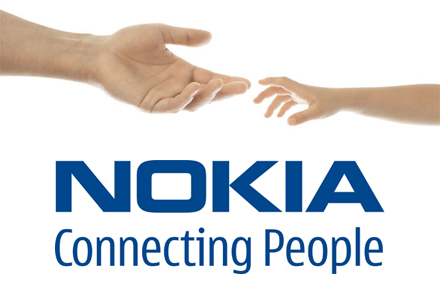A merger between Nokia (NYSE: NOK) and Research In Motion (NASDAQ: RIMM) will never happen. RIM’s BlackBerry runs its own operating system. Nokia has an alliance with Microsoft (NASDAQ: MSFT) to run its Windows mobile OS. Nokia used the Symbian operating system to compete with other companies for years, but that software has been quickly killed in favor of Microsoft’s. Nokia and RIM have moved closer to obscurity. Desperation makes strange bedfellows.
Microsoft and RIM each has suffered at the hands of Google’s (NASDAQ: GOOG) remarkably successful Android OS, which holds nearly 50% of the U.S. smartphone market. It also has had success outside the United States. Android has done so well that BlackBerry phones now run an Android player to allow owners to download Android apps. RIM at least has woken up to the fact that it may have to move toward Android to have any a chance to compete with it.
Nokia has taken a different road. Microsoft has vowed to put hundreds of millions of dollars into its partnership with what was until recently the world’s largest handset company. But new smartphones from Nokia that run Windows mobile have had only modest success. Microsoft has well under 10% of the operating system market share among smartphones sold in the U.S.
Nokia believes that its turnaround will be based on its abandonment of its old Symbian OS for Microsoft’s. The move was a radical and risky one. That was all that was left to Nokia. Its fortunes were falling too fast for it to assure investors of long-term survival.
Nokia and RIM each tried to calm investors this week. RIM released a new set of BlackBerry models that look and operate more like the Apple (NASDAQ: AAPL) iPhone and Samsung Android phones. Nokia management told its shareholders that it was a matter of time before its newest models made it relevant in the smartphone market again. Neither the RIM nor Nokia effort was compelling for investors, who continue to sell down the shares in both companies.
A merger between Nokia and RIM would be exceedingly complex — at least as complex as an alliance between RIM and Microsoft. Nokia turned to Windows so rapidly that some experts believe its phones lost the characteristics that had helped in it the past. But Nokia needed to try something as the odds turned increasingly against it.
Nokia and RIM are about to go from irrelevant to dead. Each likely will be sold off in pieces to give investors some modest return. The alternative is a venture that would include the migration of Windows to both BlackBerry and Nokia devices. A merged company would have to have a multibillion investment from Microsoft. It is the only one of the three companies with the capital and marketing muscle to make an alliance work. Experts would scoff at the attempt, though.
Microsoft has done strange things to pick up market share in sectors in which it wants to compete. It has gone as far as setting a joint search business with Yahoo! (NASDAQ: YHOO), which has barely worked. Had its bid for Yahoo! not failed, it would have gambled billions of dollars to create a search and portal giant. Microsoft bought Internet voice company Skype as its hoped to flank some traditional phone services. These deals barely made sense, but Microsoft management believed it must accept long odds to move into businesses from which it was locked out.
RIM and Nokia could each be gone in a year or two. Or they could make one last wildly risky deal to stay out of the graveyard, regardless of its complexity and an almost impossible chance that the transaction would work.
Douglas A. McIntyre
100 Million Americans Are Missing This Crucial Retirement Tool
The thought of burdening your family with a financial disaster is most Americans’ nightmare. However, recent studies show that over 100 million Americans still don’t have proper life insurance in the event they pass away.
Life insurance can bring peace of mind – ensuring your loved ones are safeguarded against unforeseen expenses and debts. With premiums often lower than expected and a variety of plans tailored to different life stages and health conditions, securing a policy is more accessible than ever.
A quick, no-obligation quote can provide valuable insight into what’s available and what might best suit your family’s needs. Life insurance is a simple step you can take today to help secure peace of mind for your loved ones tomorrow.
Click here to learn how to get a quote in just a few minutes.
Thank you for reading! Have some feedback for us?
Contact the 24/7 Wall St. editorial team.





